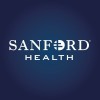Apixaban Versus Warfarin for the Management of Post-operative Atrial Fibrillation
Coronary Artery Bypass Grafting, Postoperative Atrial Fibrilation, Stroke

About this trial
This is an interventional prevention trial for Coronary Artery Bypass Grafting focused on measuring apixaban, anticoagulant, CABG, thrombosis, fibrillation
Eligibility Criteria
Inclusion Criteria:
- Signed Written Informed Consent
- Patients diagnosed with new-onset persistent or recurrent atrial fibrillation after isolated CABG surgery. Persistent atrial fibrillation is defined as an episode of >12 hours. Recurrent atrial fibrillation is defined as two or more episodes of atrial fibrillation lasting longer than 30 minutes.
- Women of childbearing potential (WOCBP) must have a negative serum or urine pregnancy test (minimum sensitivity 25 IU/L or equivalent units of HCG) within 24 hours prior to the start of study drug. Patients undergoing isolated CABG must have this tested and documented prior to the procedure, and this will be verified prior to randomization.
- Women must not be breastfeeding.
- WOCBP must agree to follow instructions for method(s) of contraception for the duration of treatment with study drug(s): 30 days of treatment plus 5 half-lives of study drug Apixaban (3 days) or warfarin (8 days) plus 30 days (duration of ovulatory cycle) for a total of 38 days post-treatment completion.
- Males who are sexually active with WOCBP must agree to follow instructions for method(s) of contraception for the duration of treatment with study drug(s): 30 days of treatment plus 5 half-lives of study drug Apixaban (3 days) or warfarin (8 days) plus 90 days (duration of sperm turnover) for a total of 98 days post-treatment completion.
Exclusion Criteria:
- Atrial fibrillation due to a reversible cause other than recent surgery
- Patients diagnosed with persistent or paroxysmal atrial fibrillation chronically before undergoing surgery
- Patients with mechanical heart valves
- Patients currently experiencing active bleeding precluding initialization of anticoagulation therapy in the opinion of their managing physician, or with increased bleeding risk (as determined by the attending surgeon) believed to be a contraindication to anticoagulation at the time of randomization Planned major surgery requiring stoppage of anticoagulation therapy during trial period
- Stroke within the previous 7 days
- Moderate or severe mitral stenosis
- Conditions other than atrial fibrillation that required anticoagulation (prosthetic mechanical heart valve)
- Patients taking warfarin, apixaban, rivaroxaban, dabigatran, edoxaban, clopidogrel, ticagrelor, or enoxaparin at home for any indication in the 15 days prior to surgery
- Patients requiring the use of clopidogrel or ticagrelor during the study period
- Severe renal insufficiency (serum creatinine level of >2.5 mg/dL or CrCL<25 ml/min) for consecutive measurements
- Allergies to warfarin or apixaban, or components of warfarin or apixaban
Sites / Locations
- Sanford Health
Arms of the Study
Arm 1
Arm 2
Active Comparator
Active Comparator
Apixaban
Warfarin
Apixaban is to be dosed at 5 mg by mouth twice daily, except in the case of the criteria listed below in "dose modifications". The duration of therapy will be at least 30 days. The patient's physician may determine that anticoagulation therapy should be continued after the study period, based on their examination of the patient at the 30-day post-operative examination.
While patients are hospitalized, warfarin will be dosed daily, with daily INR monitoring per hospital protocol. Daily doses may vary from 0.5mg to 15mg by mouth, as determined by patient specific factors such as patient size, hepatic function, INR, concomitant medications, diet, or other factors. Based on these factors or others not listed, there may also be days in which the patient is prescribed to not get does not receive a dose of warfarin. After discharge from the hospital, warfarin dosing will be subsequently managed by an anticoagulation clinic, per established protocols. All patients will have a goal INR of 2-3 during the duration of the study. The duration of therapy will be at least 30 days. The patient's physician may determine that anticoagulation therapy should be continued after the study period, based on their examination of the patient at the 30-day post-operative examination.
Outcomes
Primary Outcome Measures
Secondary Outcome Measures
Full Information
1. Study Identification
2. Study Status
3. Sponsor/Collaborators
4. Oversight
5. Study Description
6. Conditions and Keywords
7. Study Design
8. Arms, Groups, and Interventions
10. Eligibility
12. IPD Sharing Statement
Learn more about this trial
